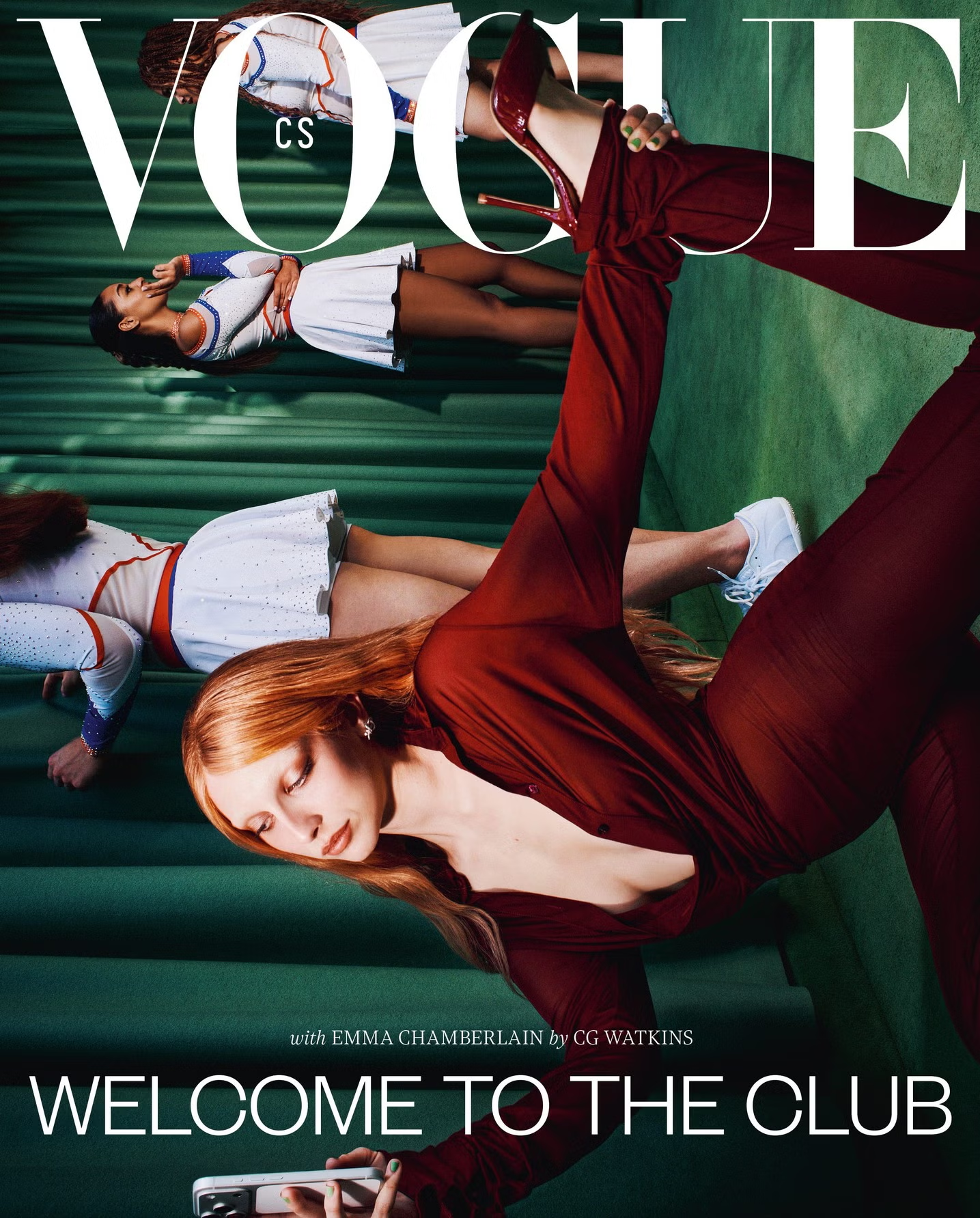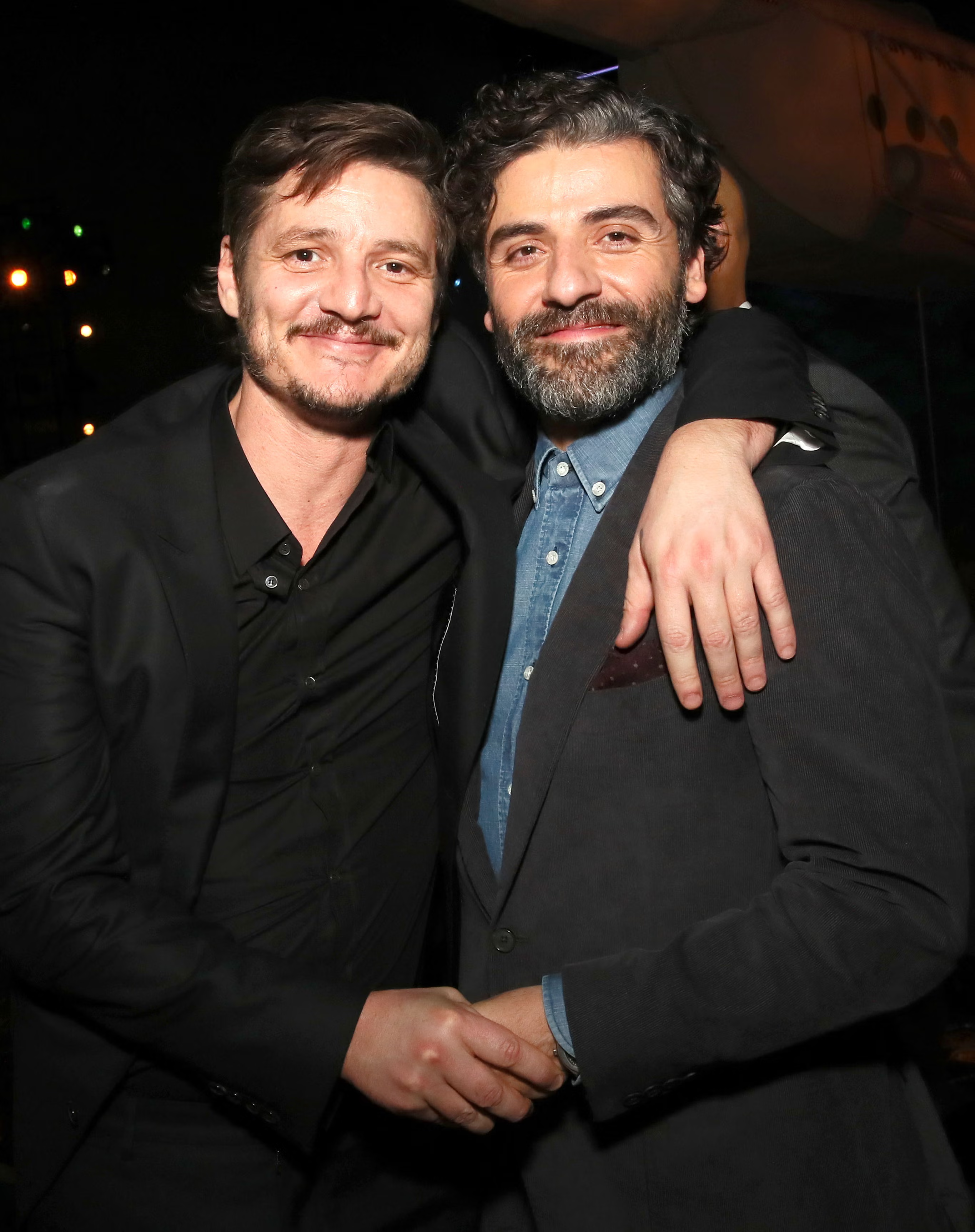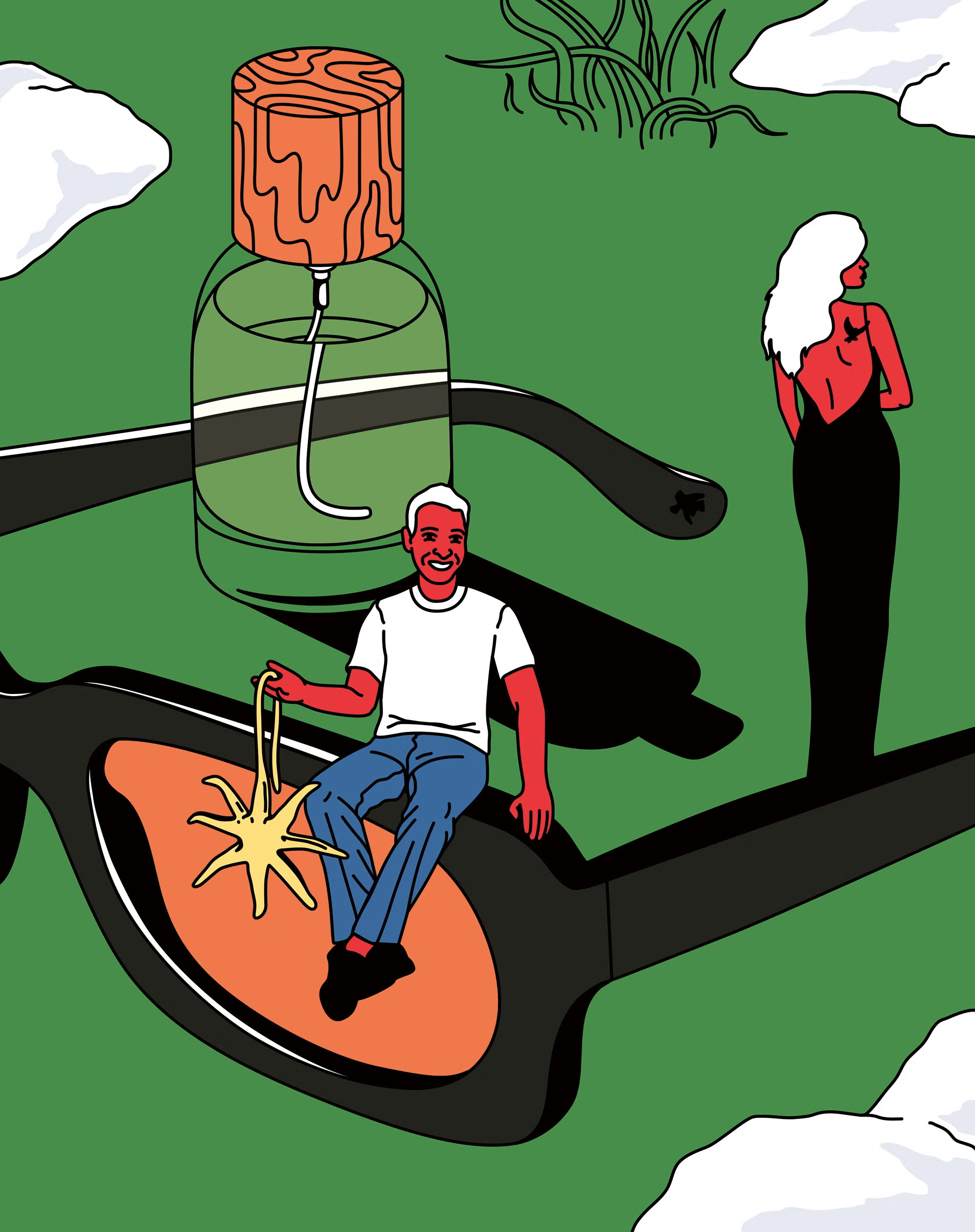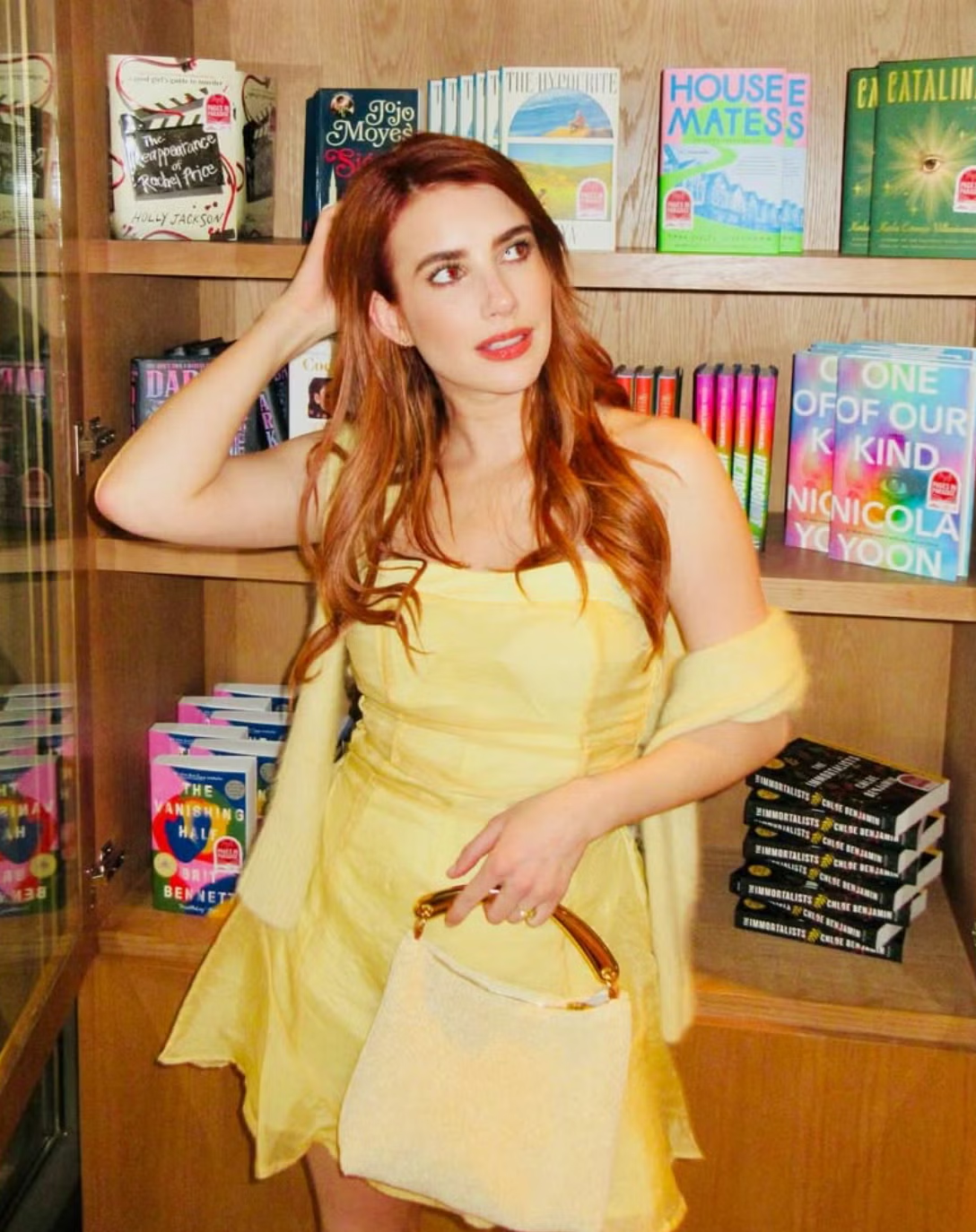Vogue CS in English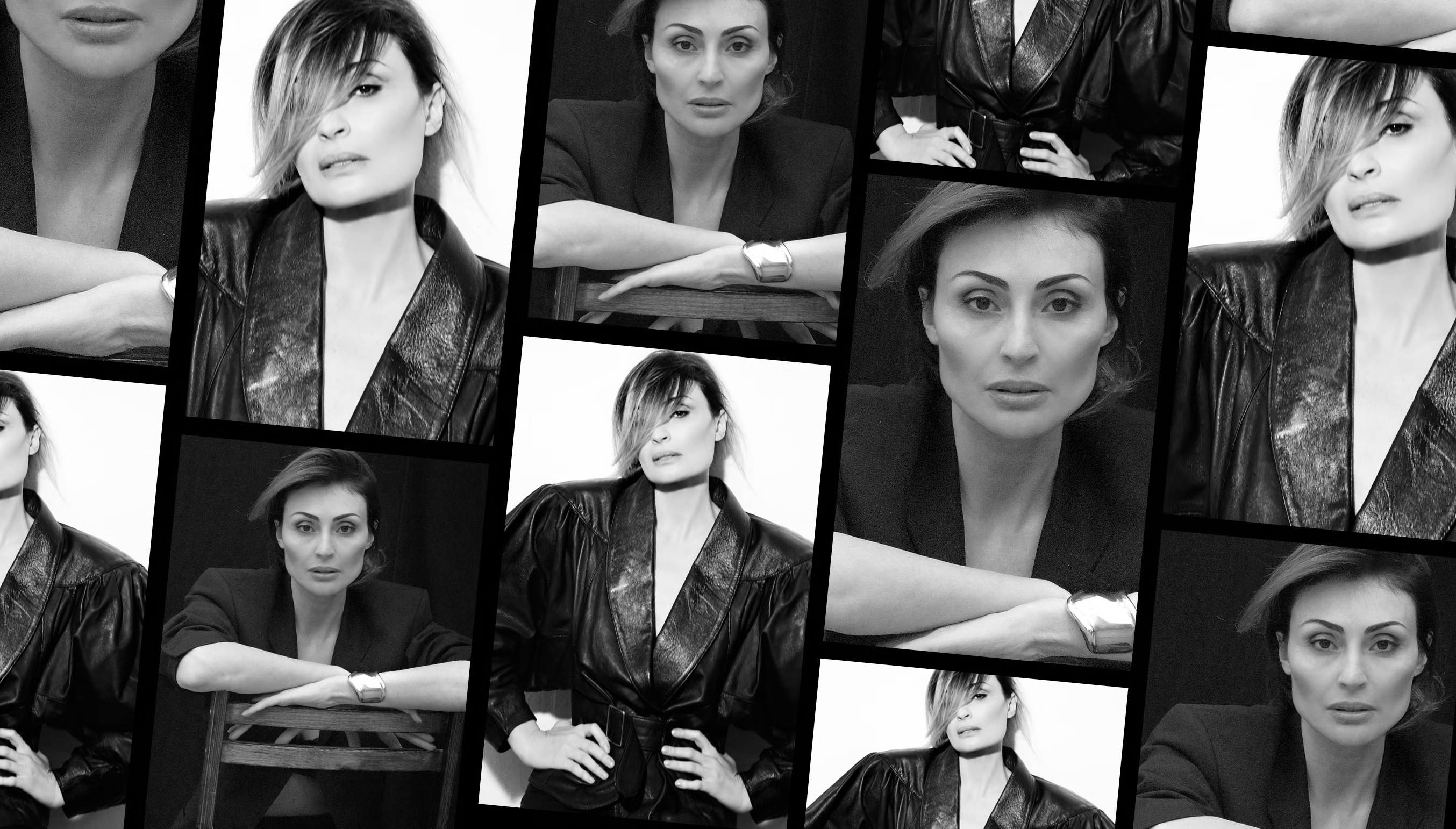
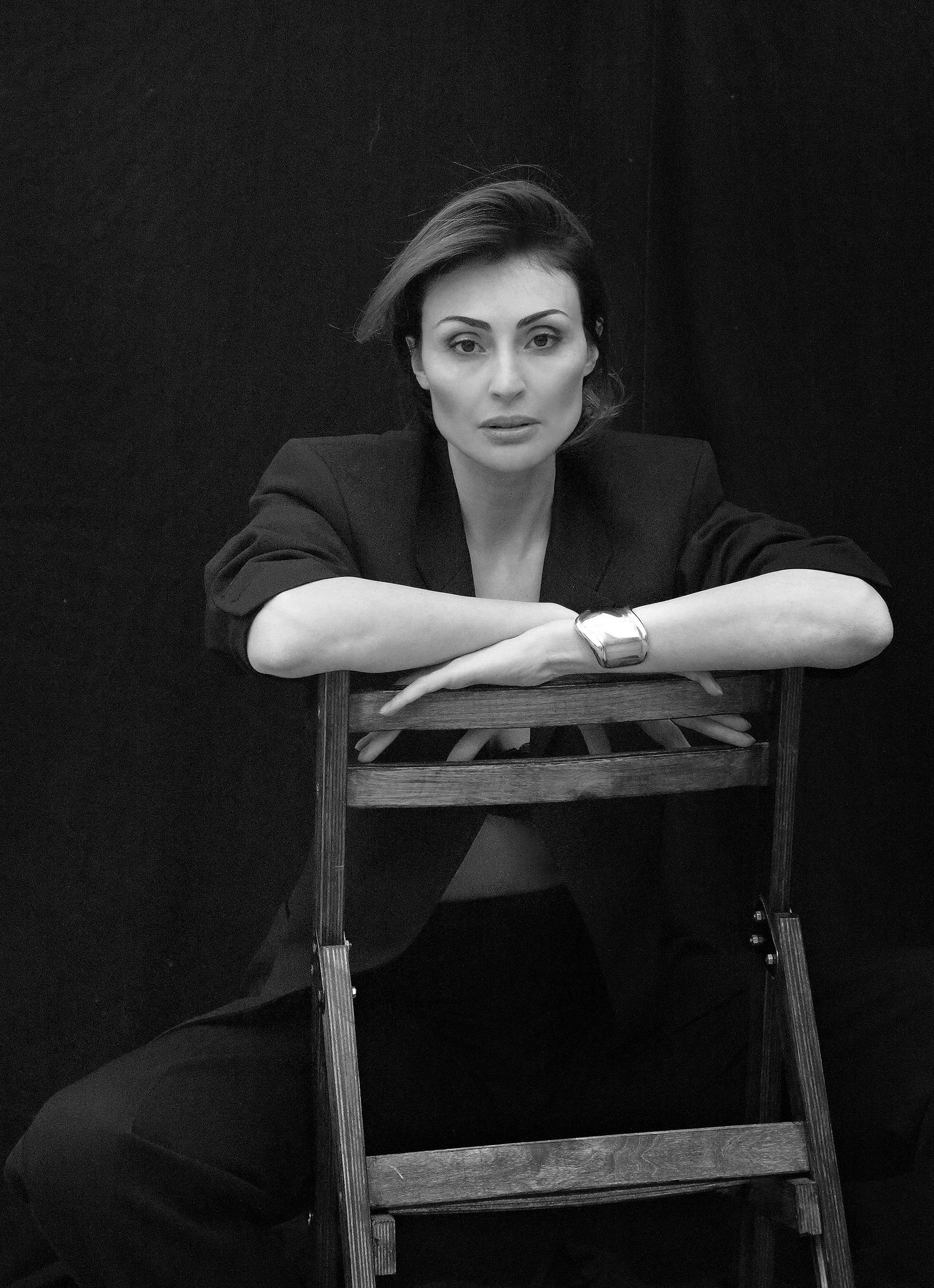
Sofia Tchkonia: Supporting talent is an important part of Tbilisi Fashion Week
Vogue Leaders6. 10. 2023
Tbilisi Fashion Week is a revelation. A very well organized event in a country that you will fall in love with after your first visit. The fashion sense is intertwined with colorful traditions, interesting atmosphere of the city, great cuisine and hospitable attitude of the locals.

Foto: GRIGOR DEVEJIEV, collage: Emma Kotian
Tbilisi is the capital of Georgia, a country on the border between Europe and Asia. Its inland location on one of the major rivers and its roughly one million inhabitants bring it closer to Prague. That Georgia has existed as a modern state since 1917 and gained full independence after seceding from the Russian Federation in the 1990s is one of many similarities between our countries. Another may be the fate of being intertwined with its close neighbors, Armenia and Azerbaijan. The city certainly has a European spirit that you might not expect on a first visit, but at the same time offers exoticism and adventure. Both are also evident in the Tbilisi Fashion Week, which the locals have embraced and which has become an integral part of Georgia's cultural life, and which was followed up last year for the first time also by Culture Week. As a platform, they don't just support fashion and culture, they mean much more. They create a space for sharing and freedom of expression for young people who take it as a chance to fully express their personality and identity. It brings together talents that make the fashion and cultural scene come alive. It contributes to the fact that more and more people are not afraid to express their difference and, especially during fashion week, but increasingly also outside it, to show it to the world. It was born from the vision of one woman, Sofia Tchkonia, who managed to enthuse a passionate team for it and together they are not only preparing Tbilisi Fashion Week 2024, but also building a new art and fashion school, The Factory.
You really put a lot of emphasis on supporting young talent. Why is it necessary?
In Georgia, it's essential. Our country is still going through changes, political, legal and economic, changes of all kinds. And the young generation is facing obstacles. They cannot afford to study, to create, they have nothing to show the world. That's why we are organizing a competition for young designers. During the pandemic we had a break because everything else stopped, but we are starting again. The international jury that we have invited for them this year has given them very important feedback and also new strength and power to continue. They are also changing, they are more creative, open-minded and free.
How are brands and designers selected?
We carefully select designers every year. This year we gave a chance to the younger ones. We choose them based on their talent and creativity. Tbilisi Fashion Week was first held in 2015, but the competitions started in 2010. So many of the designers you see here are winners of previous competitions.
Do you collaborate with Georgian design schools?
We work with local schools, but increasingly also with international ones. We try to make partnerships, arrange exchange programs and internships. The level of art schools in Georgia is still lower, we need to raise it and professionalize it.
If we all left, who would stay to work for change?
It is clear that you support Ukrainian art and fashion too. Does it have to do with the experience of your country?
I have always supported Ukrainian artists and designers, even before the war. When the war started, it was a shock for me, as it was for everyone else. Georgia went through a war with Russia many years ago, in 2008. Ours lasted only a few days, and being a small country, it went mostly unnoticed. Relations with Russia have been very complicated since then. It is still not easy. If the world had paid more attention then to what was happening in our country, perhaps it would not be happening now in Ukraine. I know what it is like. How people feel when they are fighting for freedom. When it happened, I immediately thought about how I could help. I couldn't fight, but I had to do something. I looked for and found different ways to help from Tbilisi. Culture Week and Fashion Week are my ways of fighting. I support Ukrainian art and fashion, always.
You have experience from abroad, where you have also lived for a long time. Are you now returning to Georgia permanently?
I have lived in many countries and now I am back in Georgia. The decision whether to stay or not was really not easy. But if we all left, who would stay to work for change? I decided to stay and give my full attention to the project, the Georgian Fashion Foundation, that's behind everything else we do. It's been a financially and emotionally challenging decision, but it's working.
Is it difficult to balance work and private life with such big plans?
It wasn't easy at first, but now I've achieved a certain balance. I've found my way. I have a fantastic team and it's actually easy to lead it. Teamwork is essential. If you want to follow your dreams and create something, you have to find the right people to share your vision with. Those who see and feel the same way as you do. We started as three people, currently there are ten of us and - of course - many volunteers during the fashion week itself. Young people are very happy to be involved in the event.
What makes Tbilisi Fashion Week specific?
It is different, it has its own way. Of course it has to be commercial, it's marketing, but it's more than that. It's fresh and at the same time refers to the rich tradition of the country. Tradition is an integral part of Georgian fashion. Tbilisi in particular is a very eclectic city. It's always been a mix of East and West, Europe and Asia, it used to be part of the Silk Road. You can see it in the architecture, in the food, in the fashion. It absorbs different cultures and creates a unique mix. The same thing is happening with people and our mentality. We cannot define ourselves as Europeans or Asians, it gives us something exotic and very different. And that can make us interesting to others.
If you want to follow your dreams and create something, you have to find the right people to share your vision with.
Georgia has been renowned for its natural riches, such as the many different varieties of wines and teas, which it is now trying to recreate. Does this also apply to fashion?
We're trying to. We need support to build something new. Georgia is not a country of fashion, it didn't exist here under communism. All creativity was destroyed because no one was allowed to be different. In the 90s everything collapsed, nobody cared about fashion then either, but creativity was born again. There were many artists and interesting avant-garde designers. We are still going through changes. And of course that affects fashion. That's why we decided to continue this platform, so that the new generation will not forget and will have the opportunity to create.
Tbilisi fashion week is a big attraction and has become an integral part of the country's cultural scene. Does the state support you?
Unfortunately, the Ministry of Culture does not pay attention to what we are trying to do. In terms of funding, they don't take it into account. But we are cooperating with the Ministry of Tourism and we are very happy that they understand what we do. And of course the people of Georgia support us, they all know and like Fashion Week. It has become really popular.

Foto: GRIGOR DEVEJIEV
How long does it take to prepare for fashion week?
As soon as this year's fashion week was over, we started working on the next edition; the most intensive preparations take the last six months. And at the same time, we've been working on the realization of The Factory, which is my dream. A school of art, fashion, design and architecture - and maybe even film. We will give space to small studios that will produce unique products and content.
What are your plans for the future?
I will be happy if Tbilisi Fashion Week becomes even more international, with more shows and more creators. Moreover, this year we are in The Factory, our new venue, for the first time. It used to be a Coca-cola factory, hence The Factory. We liked its industrial character, it has a really interesting atmosphere. Fashion Week will actually become one of the school's projects from next year. We have a lot planned and I'm really looking forward to everything.
Sofia Tchkonia is the founder of the Georgian Fashion Foundation and organizer of Mercedes-Benz Tbilisi Fashion Week and Tbilisi Cultural Week. She also acts as an advisor and consultant to local designers and often invests in young talent. She is now building The Factory, a Georgian art and fashion school. Tbilisi Fashion Week 2024 will take place in May new year.
This article was also published in Czech.
Join Vogue Leaders on LinkedIn.
Vogue
